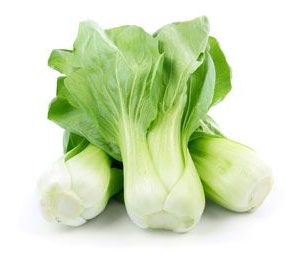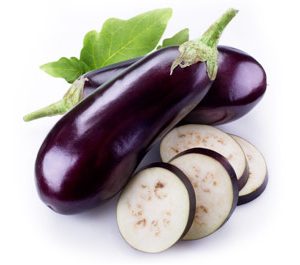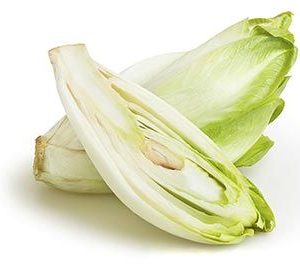It may be a crunchy snack all by itself, but celery is a versatile vegetable that can be used for numerous culinary purposes, from salads to stock. It’s a direct descendant of wild celery and a member of the Apiaceae family, along with parsnips, fennel and parsley, which are characterized by their hollow stems, taproots and umbels.
Each year, the U.S. produces a billion pounds of celery, with 80% of production from California, Michigan and Florida. Because celery has high water content, it requires fertile, organic soil. This may explain why this plant’s origin has been traced from the Mediterranean region, Asia Minor, the Caucasus region and the Himalayas.
Pascal is the celery variety most often grown in the United States. Celeriac or knob celery (A. graveolens rapaceum) is another variety that is known for its celery flavor but with an appearance similar to a turnip.
Celery is a cool-weather crop, so it’s best planted early in climates where there are cold winters, but it can be planted as a summer crop in the far north and as a fall crop everywhere else. Because the seeds are tiny, it’s advised to mix them with sand before sprinkling them on top of your garden soil. Sunlight exposure should be around six hours, and the ground should be kept consistently moist.
Celery is a great addition to salads or soups. It may also be added to stir fry dishes along with other vegetables. However, when celery is boiled or blanched (dipped in boiling water), its antioxidant capacity drastically reduces. To keep its benefits intact, steaming is the best method, as it can help retain 83% to 99% of the antioxidants celery is known to be loaded with. You can refrigerate raw celery for seven days, but wrapping it in aluminum foil may help extend the life span by another two weeks.
Health Benefits of Celery
Celery is incredibly low in calories, having only 16 per one-cup serving. This is one reason why it’s so popular for helping with weight management. The reputation celery has for being a “negative calorie” food is actually well-deserved. At the same time, celery is worth its weight in fiber, which helps move food through the digestive tract more quickly, which may help lower your risk for colon cancer. Fiber may also help curb obesity and diabetes.
Celery also contains many different health-promoting minerals, including potassium, manganese, copper, phosphorus, magnesium and calcium. In terms of vitamins, celery is a good source of vitamin A, folate, vitamin K, vitamin C, pantothenic acid, vitamin B6, niacin and riboflavin.
Celery is a rich source of flavonoids like zeaxanthin and lutein, which may help reduce the risk for age-related macular degeneration. One study also shows that this vegetable may help decrease the intensity of lipid peroxidation. Antioxidants in celery include natural phenolic dihydrostilbenoids, such as lunularin and furanocoumarins like bergapten and psoralen. The flavonols quercetin and kaempferol are also present.
Celery seeds also contain a number of little-known volatile oils, such as terpenes (which consists mostly of limonene). The compound 3-n-butyl phthalide has been shown to help limit the rise of cholesterol levels in genetically hypercholesterolemic rats. Coumarin derivatives in celery have also been suggested to be a possible strategy to help manage cigarette-smoking behavior, which may help protect the lungs of smokers in the long run.
You can find more nutrition facts about celery below. Don’t miss this celery-related article as well: “Top Benefits of Celery Juice.”
| Celery Nutrition Facts
Serving Size: 3.5 ounces (100 grams), raw |
||
| Amt. Per Serving |
% Daily Value* |
|
| Calories | 14 | |
| Calories from Fat | 0 g | |
| Total Fat | 0.17 g | |
| Saturated Fat | 0.042 g | |
| Trans Fat | ||
| Cholesterol | 0 mg | |
| Sodium | 80 mg | |
| Total Carbohydrates | 2.97 g | |
| Dietary Fiber | 1.6 g | |
| Sugar | 1.34 g | |
| Protein | 0.69 g | |
| Vitamin A22 µg | Vitamin C | 3.1 mg |
| Calcium40 mg | Iron | 0.20 mg |
Studies on Celery
Adding celery to your diet may help manage memory loss, according to a study at the University of Illinois. Luteolin, a nutrient in celery, was tested on 2-year-old mice and withheld from mice aged 3 to 6 months. Results showed that the expected brain inflammation and subsequent memory loss in the older mice were not present. In fact, they performed learning and memory tasks better than the younger mice. Scientists believe the data suggests that the luteolin content in celery may also help boost memory and halt age-related brain inflammation in humans to result in better cognitive health.
The apigenin in celery and parsley was shown to dramatically inhibit breast cancer cells in a celebrated study done at the University of Missouri. Scientists found apigenin shrank a certain breast cancer tumor stimulated by progestin, a synthetic hormone taken by women for menopausal symptoms.
While apigenin was shown to be the natural flavonoid compound responsible for inhibiting breast cancer cells, it has not been tested against pancreatic cancer. Scientists undertook the study, noting that many chemotherapeutic agents had been used to treat pancreatic cancer without success. At the conclusion, apigenin was reported to have the ability to help inhibit growth in four pancreatic cancer cell lines.
Celery Fun Facts
Celery was reportedly first used as a medicine during the 9th century in Europe. It wasn’t until 1623 that this vegetable began to appear in culinary creations in France, but only for flavoring. After almost 200 years, colonists brought the vegetable to America, with earliest records dating to 1806.
Summary
Aromatic and crispy, celery is one of the most widely enjoyed veggies on the planet. This green garden offering is great in salads, stir fries, soups or enjoyed all by itself, and is also highly nutritious.
For centuries, Ayurvedic medicine has used celery and celery seed as a treatment for various disorders, such as cardiovascular disease, inflammation and gastric ulcers. Today, it’s known as a diuretic, which may help treat colic. Studies also indicate its effectiveness in deflecting mosquitoes, but eating it is the real key.
Celery to lower oxidative stress and help clear the digestive system. Studies also found that the apigenin in celery may help lower the risk of cancer, while its luteolin may help improve heart health. These benefits alone are good reasons to up your celery intake.







Reviews
There are no reviews yet.